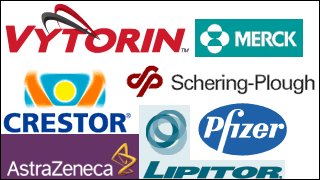July 23, 2004
Merck and Schering-Plough: FDA Approves Vytorin as Potential Cholesterol Blockbuster

Merck and Schering-Plough enjoyed a big win to celebrate over the weekend, as Vytorin won FDA approval to take on AstraZeneca’s Crestor, Pfizer’s Lipitor and a host of other statins, as they combine Merck’s Zocor, with a non-statin treatment in Schering-Plough’s Zetia.
-
Vytorin combines Zetia, a cholesterol-lowering agent developed at Schering-Plough, with Zocor, the $5 billion cholesterol-lowering medicine marketed by Merck. By itself, Zetia is far less powerful than the cholesterol-lowering medicines known as statins, such as Zocor, Lipitor and Pravachol. But it works differently, and when Zocor and Zetia are used together, they lower bad cholesterol better than any treatment currently on the market.
The U.S. Food and Drug Administration has a deadline of July 24--Saturday for its decision. Analysts expect a decision either today or Monday. In the last quarter, Zetia generated more revenue than Crestor, a new statin sold by AstraZeneca.
"By combining them at a single tablet and offering them at a single price, you obviously create a benefit to the patient," says Richard Milani, head of cardiology at the Ochsner Clinic in New Orleans. The new pill will be cheaper--both because it will cost less than buying Zocor and Zetia separately and because patients will have only a single co-payment for the pill.
Pricing is expected to emerge as a major issue for Vytorin. It must be priced competitively with Lipitor, which has half the cholesterol market and brings in $10 billion annually for drug giant Pfizer. It may, however, be priced more than Crestor.
Barbara Ryan, an analyst at Deutsche Bank, says Vytorin could eventually grab 13% of the cholesterol market, reaching sales of $3.5 billion in 2008. Zetia sales that year will probably be at least $500 million, and the joint venture could contribute $1 billion in profits each to Merck and Schering. That could be a bigger benefit to beaten-down Schering-Plough than to Merck, which will lose patent protection on Zocor in 2006. Ryan rates Schering-Plough a "buy" based on the upside from the drug. Deutsche Bank does investment banking and owns 1% or more of both Merck and Schering-Plough.
Pfizer can be expected to engage in a pitched marketing battle against any competition, perhaps arguing that lowering bad cholesterol with statins has extra, hard-to-measure benefits that doing so with Zetia does not. But the number of people who should be on cholesterol medicines constantly increases. New guidelines may have increased the number of Americans who should receive some kind of therapy to more than 50 million from 36 million. Currently, only about 11 million people do take such drugs. That exploding market can only bode well for Vytorin.
So, with cholesterol seemingly more important than ever, Merck might just have managed to extend the life of its soon-to-expire Zocor in time to blunt the impact of losing a $5 billion drug.
- Arik
Posted by Arik Johnson at July 23, 2004 10:43 AM | TrackBack "Competitive Intelligence applies the lessons of competition and principles of intelligence to the need for every business to gain awareness and predictability of market risk and opportunity. By doing so, CI has the power to transform an enterprise from also-ran into a real winner, with agility enough to create and maintain sustainable competitive advantage."
"Competitive Intelligence applies the lessons of competition and principles of intelligence to the need for every business to gain awareness and predictability of market risk and opportunity. By doing so, CI has the power to transform an enterprise from also-ran into a real winner, with agility enough to create and maintain sustainable competitive advantage."
